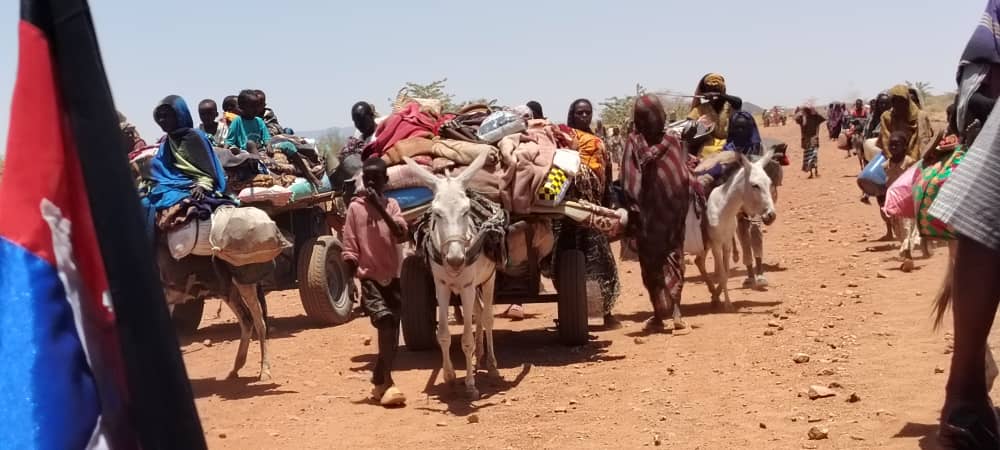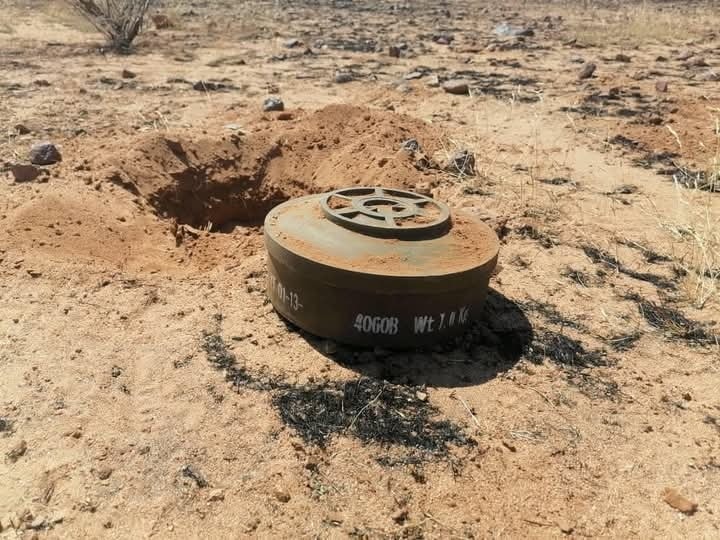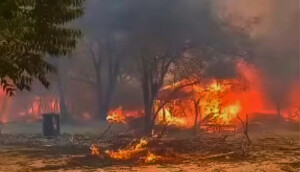UN warns of famine in North Darfur, landmines in Sudan capital

Thousands of displaced people flee El Fasher and its surroundings to Tawila (File photo: RD)
The United Nations has reiterated warnings of escalating violence and a deepening humanitarian catastrophe in Sudan, where the ongoing war, now in its 842nd day, continues to displace millions and cripple access to aid. Fighting intensified again in North Darfur capital El Fasher on August 1 and 2, with armed clashes reported around Abu Shouk camp, which shelters over 25,000 displaced people. UN Deputy Spokesperson Farhan Haq confirmed that “heavy fighting continues in North Darfur, including in El Fasher,” noting that the latest violence follows earlier clashes that have left thousands trapped inside the besieged city.
El Fasher
The people of El Fasher face extreme hunger. A year after famine was confirmed in Zamzam camp on the outskirts of the city, El Fasher remains under siege, with food supplies cut off by road for more than a year. Prices for staple food items such as sorghum and wheat are more than four times higher than elsewhere in Sudan, leaving many families unable to afford even the most basic foodstuffs.
Although some cash assistance is being distributed, it is insufficient to meet urgent needs. The situation echoes that of Zamzam, where residents are “scraping animal fodder just to survive” as famine conditions persist and humanitarian access remains blocked.
In North Kordofan, the situation on the frontlines remains unstable. UN spokesperson Farhan Haq noted that “the town of Um Sumaima has reportedly changed hands several times in recent weeks,”, which, he said, underscores the “fragility of the situation on the front lines.” Civilians in the area remain trapped, with humanitarian access still severely restricted.
Meanwhile, cholera continues to spread rapidly in Darfur. In North Darfur’s Tawila locality, over 1,180 cases have been reported since June 21, including approximately 300 among children and at least 20 confirmed deaths. Humanitarian agencies warn that malnutrition and displacement have made conditions “ripe for outbreaks”, and that more than 640,000 children under age five remain at heightened risk due to conflict-driven hunger, disease, and insecurity.
Khartoum
Farhan Haq said the confirmation of the presence of landmines in multiple locations in Khartoum State adds a new and dangerous level to the threats civilians already face. He pointed to the discovery of anti-personnel and anti-vehicle mines in Al-Muqrin, Omdurman, and Bahri. These weapons, he said, “not only maim and kill civilians, but also impede access to health services, markets and humanitarian aid”

The latest reports from Radio Dabanga confirm that “three minefields were unearthed in the Khartoum capital area”, likely planted during RSF occupation, posing serious risks for civilians and aid workers alike.
Speaking to the UN Security Council in February, OCHA’s Director of Operations Edem Wosornu called for “the repeated commitments to facilitate and enable unhindered, unfettered humanitarian access to civilians in need”, underscoring powerful international obligations to ensure safe delivery of aid even in conflict zones like Khartoum and Darfur.











 and then
and then